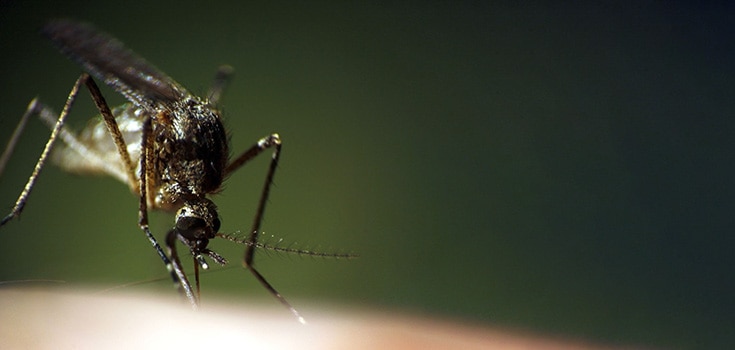Scientists Genetically Modify Bacteria in Mosquitoes for ‘Malaria Control’

In a further attempt to wipe out diseases via genetic modification, scientists are now genetically modifying bacteria found within the mid-gut of mosquitoes in order to ‘wipe out malaria’. Of course this form of malaria control is not the safest or most predictable, but as we know, scientists are continuously trying to genetically modify the world in which we live.
Malaria Control – Reducing Malaria Through Genetic Modification?
In order to ‘kill’ malaria in mosquitoes, scientists are genetically modifying a bacterium called Pantoea agglomerans so that it secretes toxic proteins. These toxic proteins are ‘not harmful’ to humans or the mosquito itself, but they do kill off the malaria parasite. One of the toxic compounds blocks the malaria from attaching to a crucial protein which allows it to survive, while another compound may penetrate the malaria’s protective outer layer, ultimately leading to it’s death.
“There are not one, but several anti-malaria compounds the bacterium secretes…Each acts by a different mechanism and makes it much more difficult for the parasite to develop a resistance to it.” explained Dr. Marcelo Jacobs-Lorena, senior author of the study and a professor at the Johns Hopkins Bloomberg School of Public Health.
Is this a good method for malaria control? If history has taught the world anything about genetic modification, absolutely not. In the past, scientists have actually modified the mosquitoes themselves. You may remember that before this endeavor of malaria control was the genetic modification of mosquitoes by a company called Oxitec. The British company responsible for the creation of the genetically modified mosquitoes created this internally manipulated insect to help control agricultural pests and reduce insect-borne diseases like dengue fever and malaria. They received about $24 million from investors for their mosquito science project.
The issue with all of this? We simply do not know the potential outcomes that could arise from such manipulation of nature. As for present day genetic modification, all signs show that so far all we are doing is killing the food supply. Needless to say, the scientists know that it will be difficult to gain approval for this genetic modification regarding mosquitoes and malaria control.
“It may take quite a bit of effort,” Jacobs-Lorena said. “People are predisposed against genetically modified foods and plants. Imagine what kind of challenges we’ll have with this.”
Are we really ‘predisposed against genetically modified foods and plants,’ or are we simply not blind to the devastating prices genetically modified organisms, such as Monsanto’s GMO corn, come with?

At this point, any strategy seems like a good idea. Malaria has claimed way too many victims already and we've barely been able to slow it down so far.